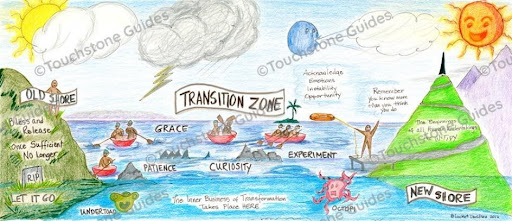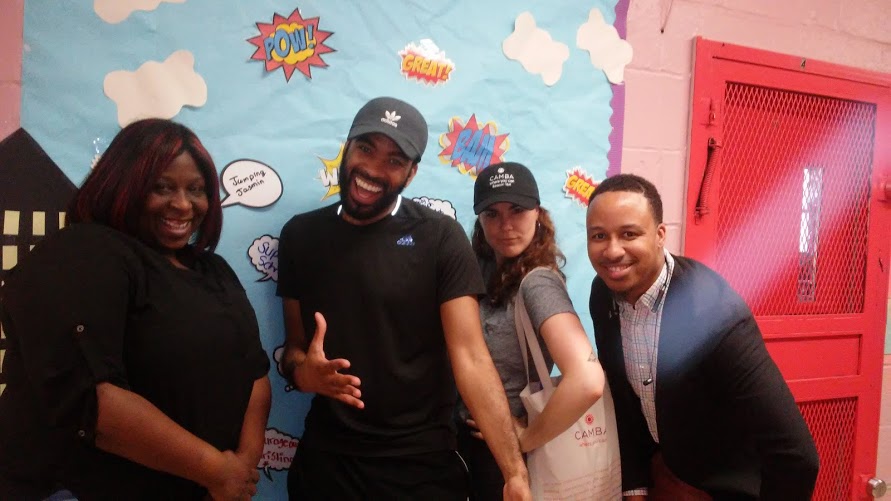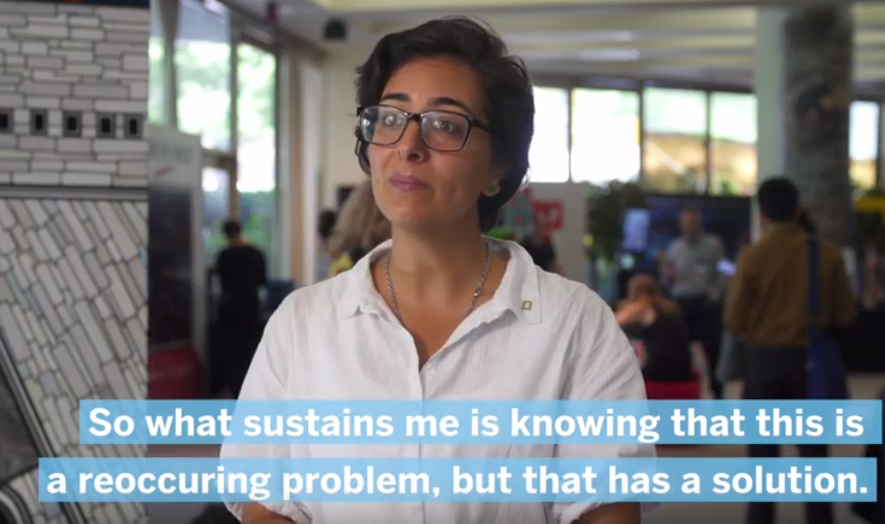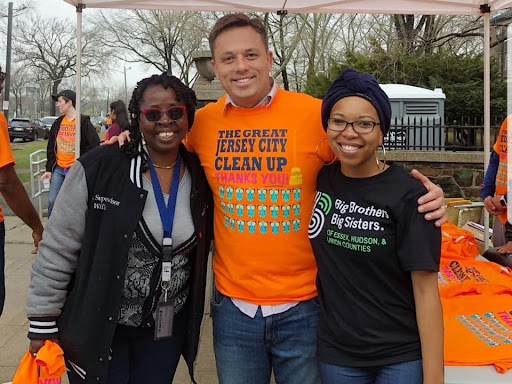
Visionary leaders need time and space to think differently, and that’s not always easy amid our day-to-day demands. Here’s how Carlos Lejnieks, CEO of Big Brothers Big Sisters in Newark, New Jersey, set a culture of making that time for himself, his team, and the young people they work with.
People who meet with Carlos Lejnieks typically receive a thank you note and a small bag of M&M’s. It’s more than just a kind gesture, it’s how Lejnieks, who is CEO of Big Brothers Big Sisters of Essex, Hudson & Union Counties in Newark, New Jersey, reminds people of his organizational needs.
The M&Ms stand for the two things Lejnieks’ organization needs most: money and mentors. Including candy, Lejnieks says, “allows our request to have the stickiness factor, but still be sincerely connected to our central bottom line.”
Lejnieks appreciates alliteration. He created “Thankful Thursdays” at his organization, a five-minute pause during weekly meetings where staff reflect on and note whatever - or whomever - they are thankful for. He even created Thankful Thursday letterhead emblazoned with the Big Brothers Big Sisters logo, to make it easy for his team to send notes to those they appreciate.
During the COVID-19 pandemic, when all meetings went virtual, Thankful Thursdays continued over Zoom. For Lejnieks, continuing the practice of gratitude remained important even during the challenges of the pandemic.
It’s part of what he terms “amplification time.”
Amplification Time - Time to Dream as a Leader
“It's easy to get caught up in the day-to-day, in the rhythm of things being tossed at you,” Lejnieks says. “What I needed, and what I've admired from certain leaders, is their ability to see much further beyond just the next few steps.”
“For me, the way it works is structuring time, formally putting it on your calendar, carving out at least an hour,” he says. ”I call it amplification time.”
Amplification time is a once-a-week opportunity for Lejnieks to proactively plan for growth by pausing and reflecting. His goal is to use those little nuggets of data for a potentially bigger purpose. He then takes that vision and brings it to the same table where his team also brings their ideas from their own amplification time so they can start connecting the dots to larger themes and bigger conversations.
If you look up the phrase “amplification time” on Google, you wouldn’t find anything close to Lejnieks’ concept. (You’ll be met with results related to DNA and polymerase chain reactions.) Lejnieks quietly pioneered amplification time, rooted in the idea of amplification, a term that is familiar from our social media culture. The dictionary definition of the word “amplify”—to turn up the volume—is where Lejnieks’ approach stems from.
Amplification time is all about creating a metaphoric microphone, turning up the volume for the children, young people, and community that BBBS serves.
“Our children have such a powerful story to tell,” Lejnieks said. “And sometimes, they feel the world doesn't hear them, or they feel the world doesn't value their narrative. And we're here to tell them that their stories matter.”
"Amplification time is all about creating a metaphoric microphone, turning up the volume for the children, young people, and community that BBBS serves."
It was from amplification time that Lejnieks had the idea to take 20 kids from his community on a full-scholarship, 10-day trip to China. It started with the question of why they don’t have international programming, and then a plan to “Let’s go international” was developed.
“No one in Big Brothers Big Sisters in the country, for 100 something years, had ever done that before,” he said. “And so I put it up on my whiteboard. This was on my Thankful Thursday amplification time moment.”
Amplification time also led to the creation of the High Five Club at Lejnieks’s BBBS, where employees who worked at the organization for five years are rewarded in a special way. For example, when one of his executives was approaching her five-year work anniversary, Lejnieks learned that she had never been to Europe. Lejnieks then made an inexpensive trip to London happen to celebrate her dedication to the organization.
The High Five Club serves a dual purpose. It rewards employees who have stayed at least five years by making one of their dreams come true. And in turn, it resolves the problem of the high employee turnover rate that the organization used to have. A lower employee turnover rate means less money spent on training new employees and more money put toward their nonprofit work.
Amplification time has also led to other great ideas that were implemented during the COVID-19 pandemic. The organization supported a local Black-owned restaurant that was struggling by buying gift certificates for meals for every staff member and their families. This effort helped support a local business in a purpose-driven way, and it gave their staff a free meal. BBBS also gave vouchers for a night at a Black-owned bed-and-breakfast in Poconos, which not only supported the business but also encouraged staff to take self-care time during the pandemic.
Thinking Beyond the To-Do List
Lejnieks has experience stabilizing and growing a company during challenging times. He took over BBBS of Essex, Hudson and Union Counties in New Jersey in 2008, right after the financial crisis. It was a difficult moment that left Lejnieks wondering if they were going to survive. Thankfully, the organization weathered the storm, and has continue to grow.
In fact, within four years, the organization went from serving approximately 100 youth to serving over 1,100. Under Lejnieks’s leadership, they have received numerous awards including a formal recognition by former President Obama. Lejnieks is also an alum of the 2010 class of the American Express Leadership Academy, and last April he received their Global Alumni Award.
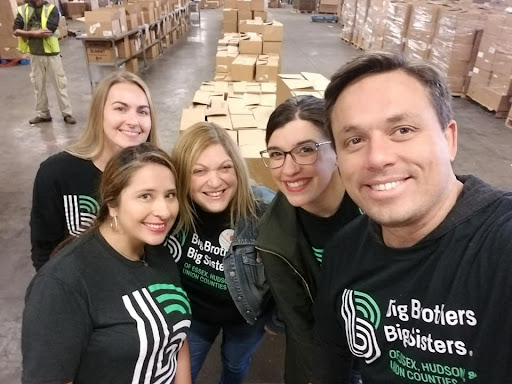
Lejnieks continues to practice amplification by setting aside time in his weekly schedule. He doesn’t have a precise method or curriculum for his process, but he designates time by going into the office early and giving himself space to think big.
“I have a whiteboard, and sometimes I love to get into the office early and just kind of sketch out things,” Lejnieks said. “Sometimes it leads to just intellectual thoughts. Sometimes it leads to a program. Sometimes it leads to just a feel-good [moment].”
It doesn't always have to result in a big idea every time, he said, but it creates opportunities for leaders to creatively come up with new ideas and new ways of thinking about their work. Lejnieks stands by setting aside time for amplification in his calendar and the importance for leaders to do the same. "It’s incredibly easy for leaders to get caught up in the day-to-day tasks and fires they need to put out. They see their to-do list and need to check off everything."
At the end of the day, Lejnieks aims to be his best self during amplification time. He stands by setting aside time for amplification in his calendar and the importance for leaders to do the same.
“I think it allows us to see the forest from the trees,” he said. “It's about thinking beyond the [to-do] list.”
|
Take It With You To think beyond your to-do list, consider:
|
____________________
📽️ You can also watch the LeaderStories 90-second video profile featuring Carlos Lejnieks and his work: Investing in the Human Potential of Young People.






